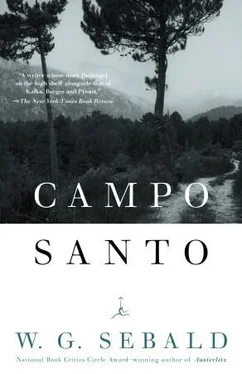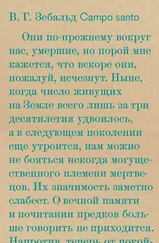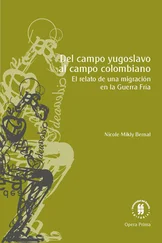Before leaving the museum I went down to the basement, where there is a collection of Napoleonic mementos and devotional items on display. It includes objects adorned with the head and initials of Napoleon — letter openers, seals, penknives, and boxes for tobacco and snuff — miniatures of the entire clan and most of their descendants, silhouettes and biscuit medallions, an ostrich egg painted with an Egyptian scene, brightly colored faïence plates, porcelain cups, plaster busts, alabaster figures, a bronze of Bonaparte mounted on a dromedary, and also, beneath a glass dome almost as tall as a man, a moth-eaten uniform tunic cut like a tailcoat, edged with red braid and bearing twelve brass buttons: l’habit d’un colonel des Chasseurs de la Garde, que porta Napoléon I er (The uniform of a colonel in the Chasseurs de la Garde, worn by Napoleon I).
There are also many statuettes of the Emperor carved from soapstone and ivory and showing him in familiar poses, the tallest about ten centimeters high and each of the others smaller than the last until the smallest seems almost nothing but a white speck, perhaps representing the vanishing point of human history. One of these diminutive figures depicts Napoleon after his abdication sur le rocher de l’île de Sainte-Hélène (on the rock of the island of St. Helena). Scarcely larger than a pea, he sits in cloak and three-cornered hat astride a tiny chair set on a fragment of tuff which really does come from his place of exile, and he is gazing out into the distance with furrowed brow. He cannot have felt at ease there in the middle of the bleak Atlantic, and he must have missed the excitement of his past life, particularly as it seems that he could not really depend even on the few faithful souls who still surrounded him in his isolation.
Or so, at least, we might conclude from an article in Corse-Matin published on the day of my visit to the Musée Fesch, in which a certain Professor René Maury claimed that a study of several hairs from the Emperor’s head undertaken in the FBI laboratories established beyond any doubt que Napoléon a lentement été empoisonné à l’arsenic à Sainte-Hélène, entre 1817 et 1821, par l’un de ses compagnons d’exil, le comte de Montholon, sur l’instigation de sa femme Albine qui était devenue la maîtresse de l’empereur et s’est trouvée enceinte de lui (“that Napoleon was slowly poisoned with arsenic on St. Helena, between 1817 and 1821, by one of his companions in exile, the comte de Montholon, at the urging of his wife, Albine, who had become the Emperor’s mistress and was pregnant by him”). I do not really know what we should think of such stories. The Napoleonic myth has, after all, given rise to the most astonishing tales, always said to be based on incontrovertible fact. Kafka, for instance, tells us that on November 11, 1911, he attended a conférence in the Rudolfinum on the subject of La Légende de Napoléon , at which one Richepin, a sturdy man of fifty with a fine figure, his hair arranged in stiff whorls in the Daudet style and at the same time lying close to his scalp, said among other things that in the past Napoleon’s tomb used to be opened once a year so that old soldiers filing past could set eyes on their embalmed Emperor. But later the custom of the annual opening of the tomb was discontinued, because his face was becoming rather green and bloated. Richepin himself as a child, however, says Kafka, had seen the dead Emperor in the arms of his great-uncle, who had served in Africa and for whom the commandant had the tomb specially opened. Moreover, Kafka’s diary entry continues, the conférence concluded with the speaker swearing that even in a thousand years’ time every mote of the dust of his own corpse, should it have consciousness, would still be ready to follow the call of Napoleon.
After I had left the Musée Fesch I sat for a while on a stone bench in the Place Letizia, which is really just a small garden set among tall buildings and containing some trees, with eucalyptus and oleanders, fan palms, laurels, and myrtles forming an oasis in the middle of the town. This garden is separated from the street by iron railings, and the whitewashed façade of the Casa Bonaparte stands on the other side of the road. The flag of the Republic hung over the gateway through which a more or less steady stream of visitors was going in and coming out: Dutch and Germans, Belgians and French, Austrians and Italians, and once a whole group of elderly Japanese of very distinguished appearance. Most of them had left, and the afternoon was already drawing to an end, when I finally entered the building. The dimly lit entrance hall was deserted, and there seemed to be no one at the ticket desk either. Only when I was right in front of the counter, and was just putting out my hand to one of the picture postcards displayed there, did I see a young woman sitting, or I could almost have said lying behind it, in a black leather office armchair tipped backward.
I actually had to look down at her over the edge of the counter, and this act of looking down at the cashier of the Casa Bonaparte, who was probably only tired from much standing and perhaps had just dozed off, was one of those moments strangely experienced in slow motion that are sometimes remembered years later. When the cashier rose, she proved to be a lady of very stately proportions. You could imagine her on an operatic stage, exhausted by the drama of her life, singing “Lasciate mi morire” or some such closing aria. Far more striking, however, than her divalike figure, and something that became clear only at second glance but was all the more startling for that, was her resemblance to the French emperor in whose birthplace she acted as doorkeeper.
She had the same rounded face, the same large, very protuberant eyes, the same dun-colored hair falling in a jagged fringe over her forehead. As she gave me my ticket and saw that I could not take my eyes off her, she gave me a forbearing smile and said, in positively seductive tones, that the tour of the house began on the second floor. I climbed the black marble staircase, and was not a little surprised to be met on the top landing by another lady who also seemed to be of Napoleonic descent, or rather who somehow reminded me of Masséna or Mack or another of the legendary marshals of France, probably because I had always imagined them as a race of dwarfish heroes.
For the lady awaiting me at the top of the stairs was of strikingly small stature, a feature further accentuated by her short neck and her very short arms, which scarcely reached her hips. In addition, she wore the hues of the Tricolor: a blue skirt and a white blouse, and around her waist a red belt with a heavy, gleaming brass buckle which had something decidedly military about it. When I had reached the top step the Maréchale stepped aside, half-turning, and said, “Bonjour, monsieur.” She too wore a slightly ironic smile, indicating, as I thought, that she knew far more than I could ever guess. Rather disconcerted by my encounter with these two discreet messengers from the past, which I could not account for to myself, I wandered aimlessly around the rooms for a while, went down to the first floor, and then climbed back to the second floor again. Only gradually did I make sense of the furnishings of the place and the items on display.
On the whole, everything was still as Flaubert had described it in the diary of his visit to Corsica: rather unassuming rooms furnished in the style of the Republic; a few chandeliers and mirrors of Venetian glass, the looking glasses now spotted and dim; a soft twilight, for the tall double windows were wide open, just as they had been in Flaubert’s time, but the dark green slatted blinds had been closed. Sunlight lay in white stripes like a ladder on the oak floorboards. It was as if not an hour had passed since Flaubert’s visit. Of the items he mentioned, only the imperial cloak with the golden bees that he had seen shining in the chiaroscuro was no longer here. Family documents inscribed in handsomely curving letters lay quiet in their glass cases, with Carlo Bonaparte’s two shotguns, a couple of pistols, and a fencing foil.
Читать дальше












